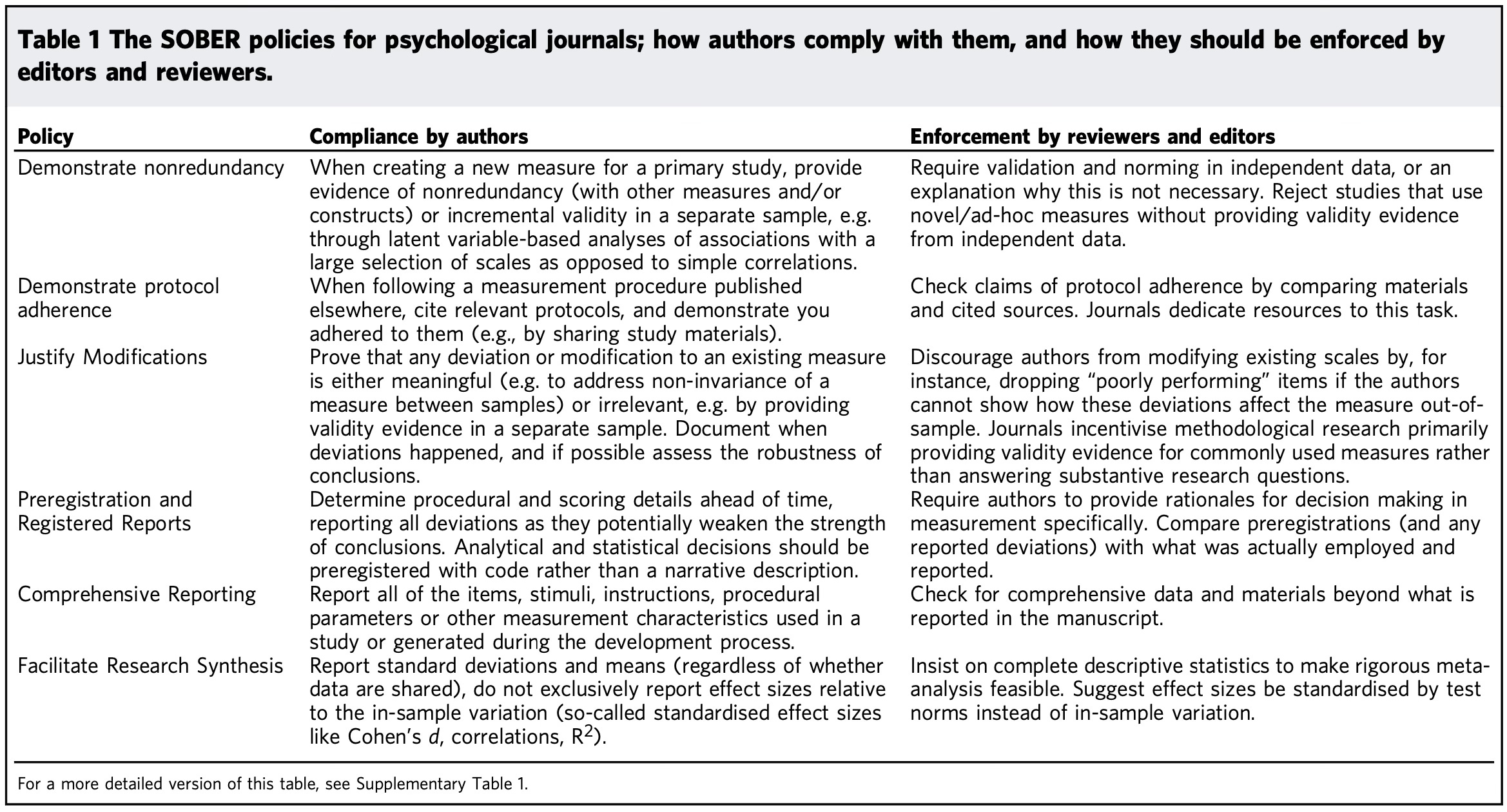We should all get more comfortable using other people's toothbrushes.
Elson and colleagues (2023) extend Walter Mischel's toothbrush analogy to measurement instruments in psychology.
I really love how Walter Mischel described psychology’s “toothbrush problem” - “Psychologists treat other peoples’ theories like toothbrushes — no self-respecting person wants to use anyone else’s.” That's very true (and something I touched on, a bit, here), and also, Elson and colleagues (2023) have expanded that argument to how psychologists use (or don’t use) measurement instruments. Did you know that most psychological measures (except for the BIG ones like the PANSS) are used only once or twice? That’s what Elson et al. found. This means there’s a huge proliferation of measures out there, greatly increasing the likelihood of jingle-jangle fallacies and other measurement problems (Flake and Fried have a great article on this, and Flake has another great article on measurement in educational psychology, here.) The proliferation of many measures, with insufficient psychometric evidence for each, also has implications for meta-analyses, among other types of synthetic work. So, we really need to do a better job, as a field, developing, norming, and using a smaller set of more frequently used instruments. Elson et al. have recommendations for how to do this, which they comprised into a set of “Standardisation Of BEhavior Research (SOBER)” guidelines.

Hear hear! Measurement development is tough work, but needs to get the same attention that research design and statistical analyses get. Overall, the field needs spend less time creating the next great toothbrush, and more time actually brushing.